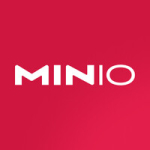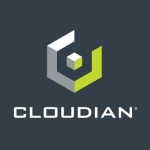What is our primary use case?
This solution is deployed at the customer level. They use it for media files and file storage and there are some customers who are evaluating it for the content archive.
What is most valuable?
The features that I have found most valuable are their retention logs. The other thing I have found most valuable is the way they handle the BHEA. Basically the DNS and everything is managed by itself. It is seamless to the users. I think that some of the verticals are things that come with the total package for the BHEA, multi-side BHEA, and everything. That's what I think is unique.
What needs improvement?
In terms of what can be improved, normally they provide it as object storage, but they see that as a vendor they don't have the components to glue it. So they allow all the partners to come up with all the ideas. But when positioning, if Hitachi could also come up with their own sort of software to provide solutions, by OEM like Microsoft and all those, they would allow partners to promote their solutions to a partner store. Something like that. That's the way they should take this. Let's say from a partner point of view, we don't see what Hitachi does globally with the partners. That availability is not there. I think it would be good if they had a platform like that. And we can also co-sell to other countries. You can do a lot with the platform.
For how long have I used the solution?
I have been using Hitachi Content Platform for four to five years.
What do I think about the stability of the solution?
Normally it is stable. We have not come across any bugs. But there were double feature issues on the previous versions, but I see most of them are fixed as per our requirement. Overall, it's not bad, it's stable.
But I don't recommend it to be used as a normal file server.
What do I think about the scalability of the solution?
In terms of scalability, I can scale up to what I need. I don't think there's an issue of scalability.
There are a few clients who are with us. I'm based out of Sri Lanka, so it's not a big country. We have about 26 clients who are using it with the BHEA.
How are customer service and technical support?
In terms of the customer support, I can say it's a mixed reaction depending on the country. That's what we have found, where the support and the level of expertise depends on the country. But from some places, let's say, from this country, they'll just route the call to somebody else. If the call is picked by a person in country B, then it is extremely good. They are experts. That's how it is.
How was the initial setup?
The initial setup is mixed. If you look at the hardware set up it could be a bit complex. But after that, it's pretty straightforward. So, if you look from the hardware spec to getting everything done, once the hardware is booted up, it will be within a day or two for us to get the initial thing started up. That hardware set up depends on the rest. It takes time. From there on, most of it depends on the customer requirements and the minute configurations.
Which other solutions did I evaluate?
We did not evaluate any other option for our object storage. Previously we were looking at the BHEA. They had a solution. They were the division that we used a few years back. We have tried with Sun Microsystems and MFS. We tried that out but didn't use it.
What other advice do I have?
I would advise anyone using this solution to get proper glue. You have one product and you will be using it for some purpose, but you need the glue to stitch them together. You need to find the right glue. For that process, when you have to have the right glue and you come up with a complete solution - Hitachi can be a bit painful.
Additionally, they need to come up with a simple migration. Writing a proper data migration from an existing system to migrate, that is something that they lack.
On a scale of one to ten, I would rate Hitachi Content Platform about a nine.
Disclosure: My company has a business relationship with this vendor other than being a customer. partner













